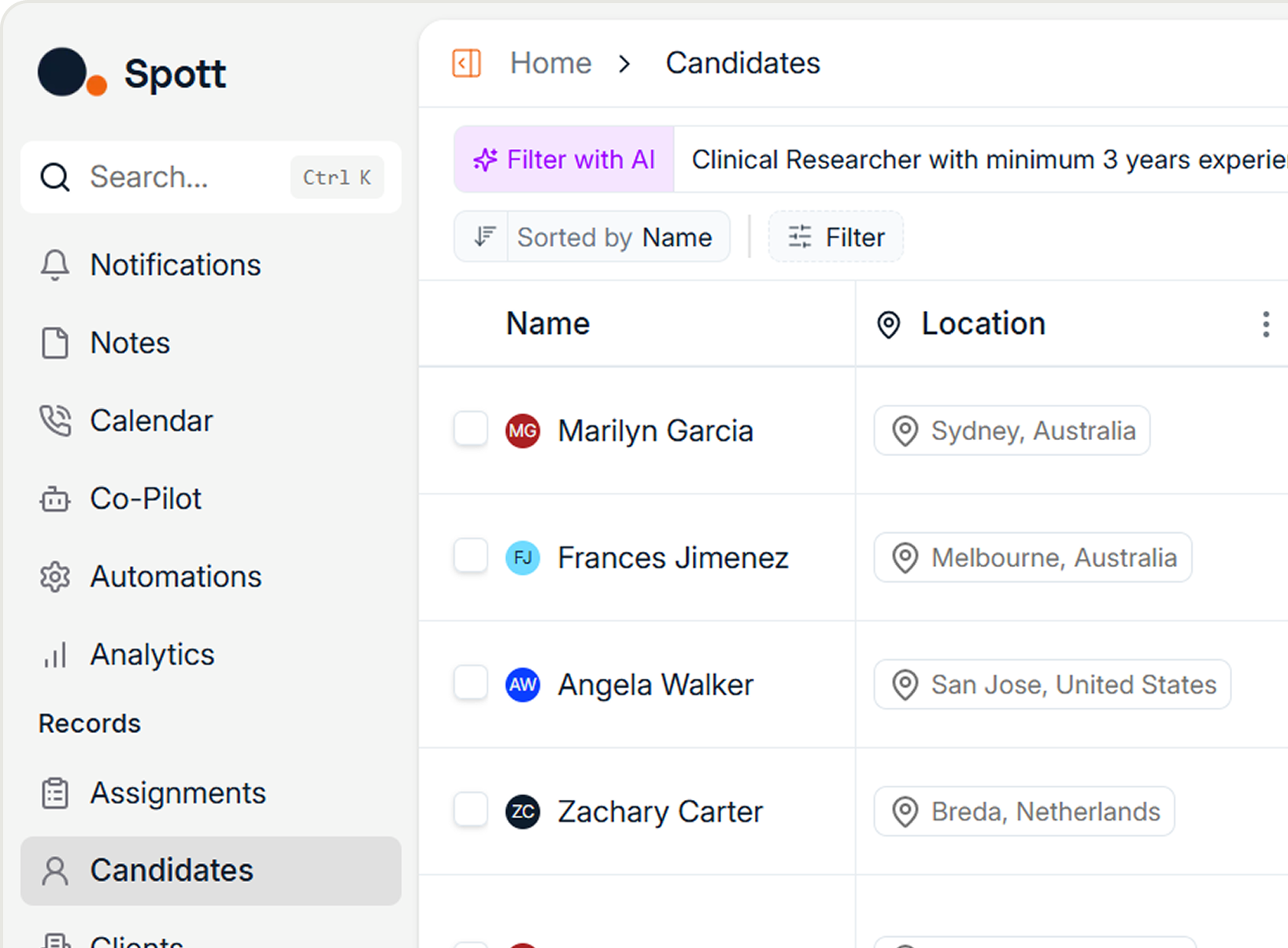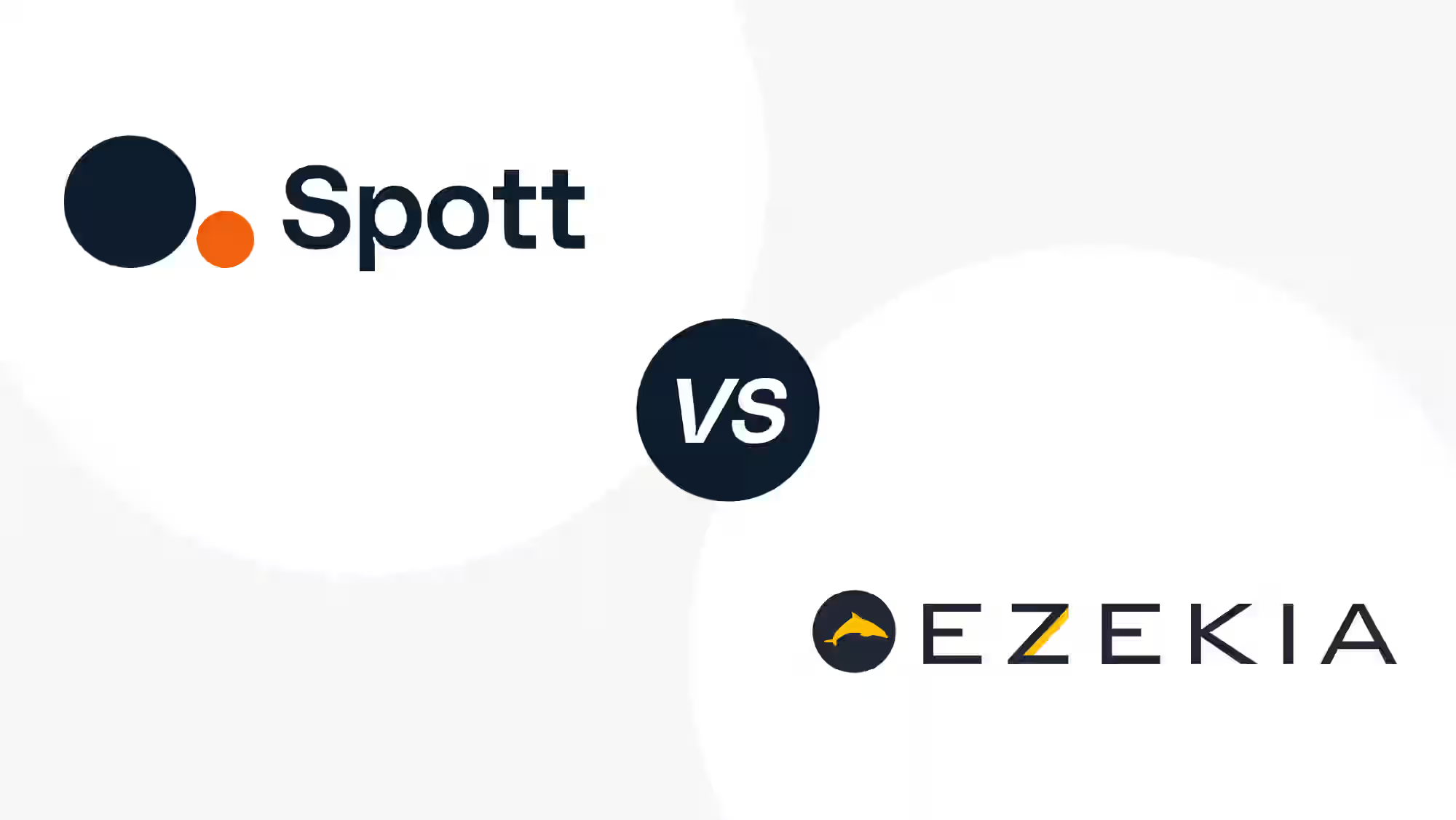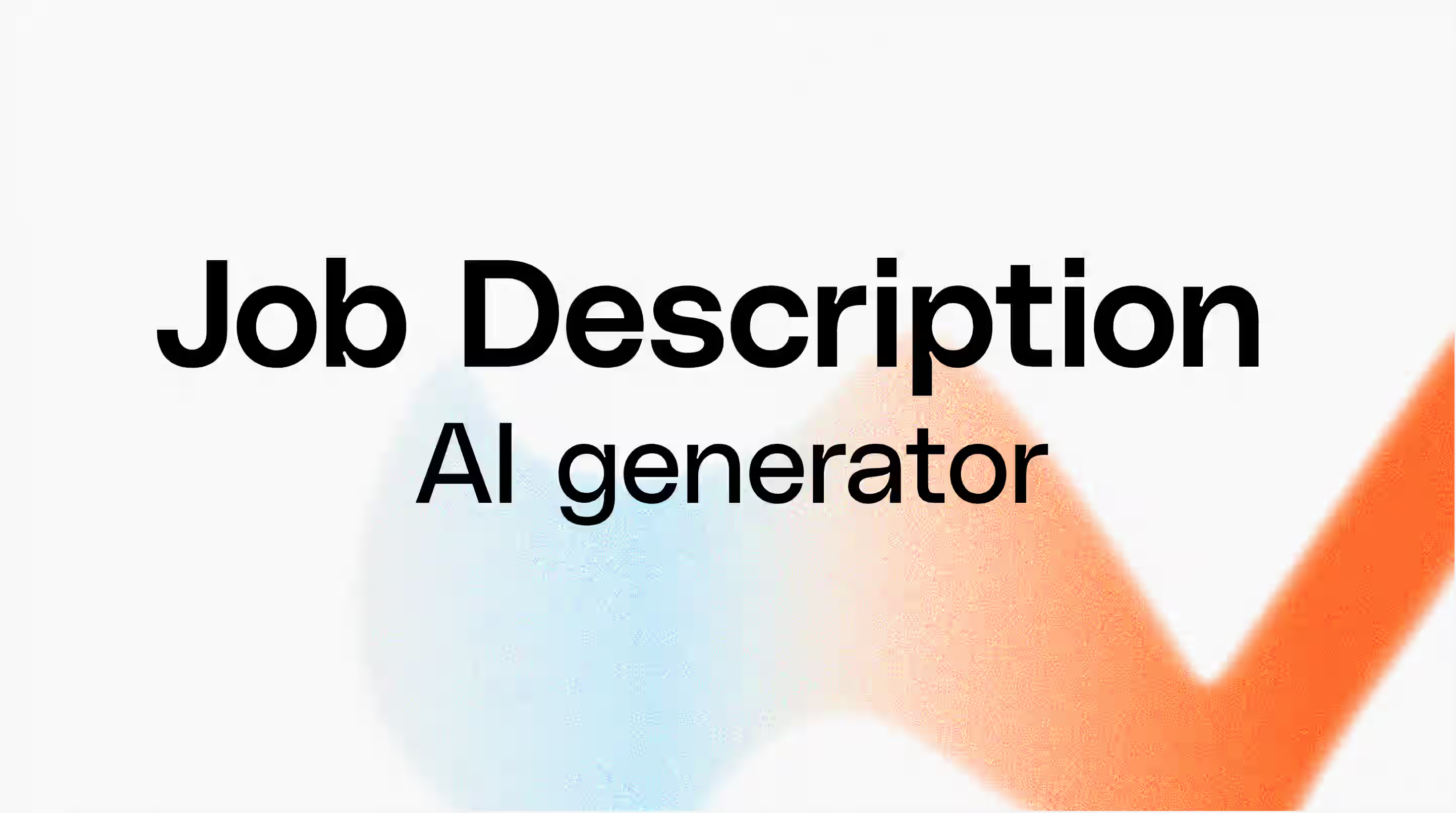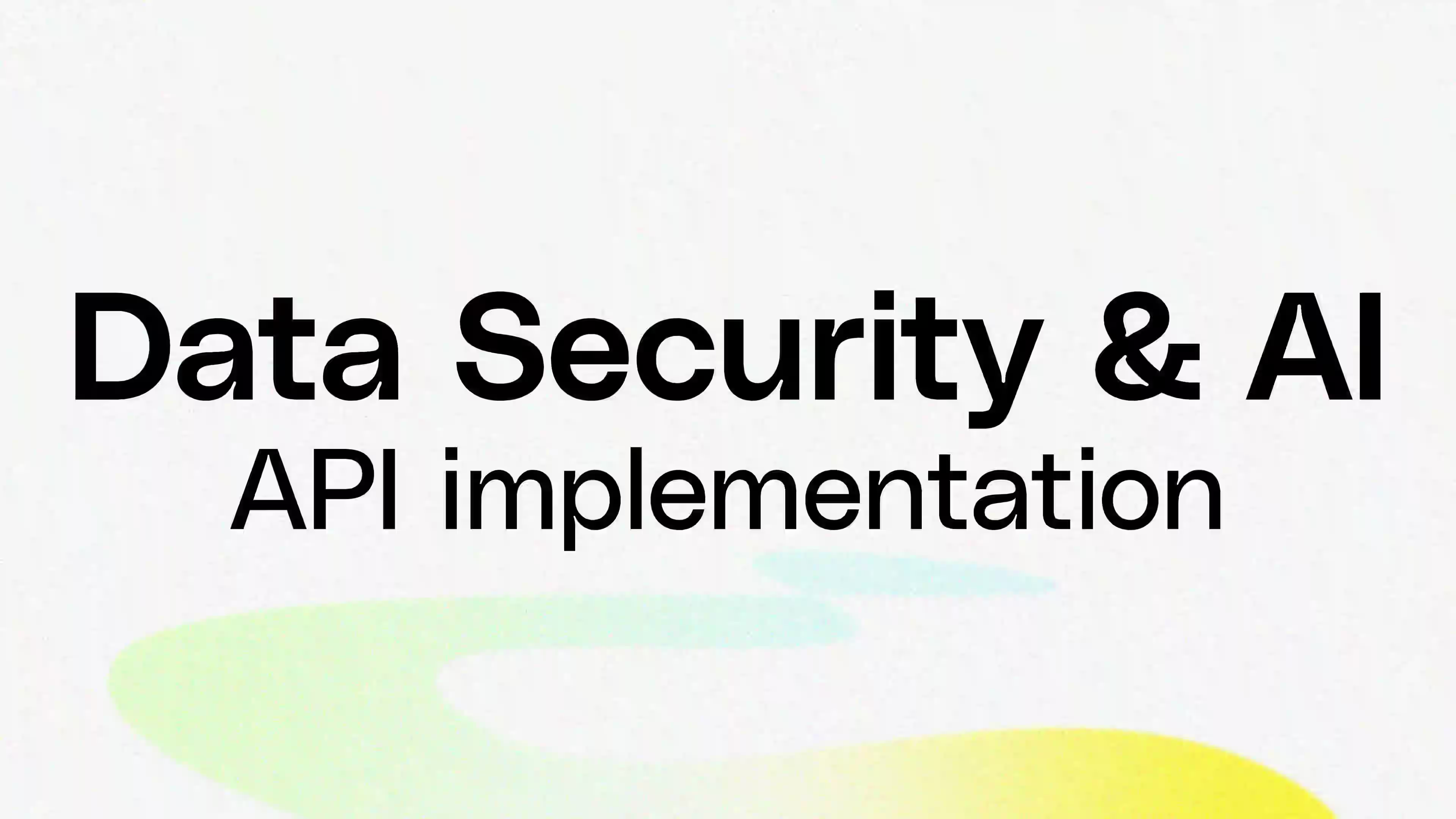
Looking beyond traditional recruiting methods
Discover the ideal ATS/CRM solution for your business as we compare the top contenders for you in our head-to-head series
In the competitive landscape of executive recruitment, artificial intelligence has evolved from an optional technological enhancement to a strategic necessity. While AI has been more prevalent in volume recruiting over the past 2 years, executive search firms are increasingly opting in to leverage its capabilities to enhance efficiency and decision-making. Today, forward-thinking executive search firms are discovering that sophisticated AI implementation offers a significant advantage in identifying, engaging, and securing top-tier executives.
Beyond Traditional Recruitment Methods
The executive search industry stands at a critical crossroads. The conventional approaches to identifying and evaluating executive talent no longer suffice in today’s high-speed environment. Dedicated AI solutions are changing how headhunting firms operate at a fundamental level, with capabilities beyond the basic automation features layered onto legacy systems or the ad hoc use of ChatGPT.
Consider this: every client conversation, candidate interaction, and placement outcome creates valuable data points that could help inform and enhance future searches. Too often, we see these valuable sources of information being lost in translation due to limited system capabilities. This is where an AI-native platform truly shines: all untapped information is used to automates repetitive tasks and support decision-making.
How Modern AI Elevates Executive Recruitment
Sophisticated Talent Identification
The latest ATS & CRM platforms excel at understanding the nuanced requirements of executive positions. Moving beyond simple keyword matching, advanced AI comprehends the context and implications of experience, skills, and achievements. This sophisticated approach identifies candidates who might be overlooked by traditional methods, while having the right mix of expertise and skills to thrive in a certain position.
When searching for a Chief Digital Officer, for instance, these intelligent systems understand that experience leading "digital transformation initiatives" might carry more weight than a particular title. The system analyzes past experiences, tenure, responsibilities, and interview notes to provide a more nuanced evaluation of potential matches, focusing on actual capabilities rather than just job titles.
Relationship Intelligence at Scale
Executive search will continue to be driven by human relationships, even during the AI generation. AI proves to be an exceptional companion in this area: the latest ATS platforms track and analyze interactions across all input sources, providing instant access to historical conversations and insights. They identify optimal timing for candidate outreach and maintain engagement with passive talent through personalized follow-up processes.
This relationship intelligence enables executive search professionals to focus on high-value, personal interactions while AI handles routine tasks and surfaces important patterns that might otherwise go unnoticed. The result is deeper client relationships and more meaningful candidate connections.
Evidence-Based Decision Making
An AI-native recruitment platform converts vast amounts of unstructured data from calls, emails, resumes, and interviews into easily understandable insights. Rather than relying exclusively on intuition, search professionals can access advanced analytics about executive compensation trends, career progression patterns, industry movements, talent availability, and success indicators for specific leadership roles.
This evidence-based approach leads to more accurate placements, reduced time-to-hire, and increased satisfaction for both clients and placed executives. It also allows search firms to provide strategic insights based on robust market intelligence, further providing value to clients.
The Distinct Advantages of AI-Native Design
Understanding the fundamental difference between truly AI-native platforms and legacy systems with high-level AI features is critical. Purpose-built AI solutions offer several significant advantages:
Integrated Intelligence: AI-native platforms are built from the ground up with artificial intelligence and machine learning as backbones. This creates a cohesive product where every feature fits in smoothly, resulting in a more intuitive and powerful user experience. Another advantage is the elimination of complex, error-prone integrations between your legacy ATS and AI solutions.
Comprehensive Data Capture: Modern platforms automatically capture and analyze all available data points, transforming every interaction into valuable intelligence without requiring manual documentation. This automated data collection ensures nothing falls through the cracks while reducing administrative burden.
Learning Systems: As search firms grow and generate more data, AI-native systems become increasingly effective, learning from each search to improve future outcomes. This creates an virtuous cycle where the platform continuously enhances its performance based on actual usage patterns and results.
Practical Applications Transforming Executive Search
1. Reimagining Candidate Discovery
AI transforms the initial phases of executive search by analyzing vast amounts of publicly available data to identify potential candidates, on top of continuously updating existing candidate records based on recent promotions and job changes. We’ve all experienced the frustration of trying out endless LinkedIn search filters only to find hundreds of candidates that are totally unrelated to your initial query. Advanced AI techniques ensure that all relevant information is considered when identifying the right candidate. This enables you to quickly assemble highly qualified candidate pools that extend beyond the obvious choices, often uncovering hidden talent that precisely matches client requirements.
Another example is how AI platforms can assemble all kinds of chaotic data inputs, consolidating these into standardized and customizable candidate templates to ensure objective assessment of potential without allowing subjective elements such as a CV’s layout or a candidate photo to interfere with your judgment.
2. Elevating Assessment Processes
AI-Native recruitment platforms enhance the interview and assessment process through intelligent interview scheduling and coordination, real-time transcription and analysis of conversations, automated generation of extensive interview summaries, and pattern recognition across successful placements to inform evaluation.
These capabilities ensure consistent, thorough assessment while allowing recruiters to focus on building relationships and exercising their judgment with regards to the intangible qualities that make great leaders.
3. Strengthening Client Relationships
Stronger client relationships come from delivering superior service, backed by data-driven insights, automated personalized communications, and seamless tracking of interactions. Detailed reports and analytics further enhance transparency and decision-making.
This approach enables search firms to provide exceptional service at every stage while demonstrating their unique value through strategic guidance and market intelligence.
The Future Landscape of AI in Executive Search
As AI technology continues its rapid evolution, the gap between AI-native platforms and traditional recruitment systems will only widen. Innovative firms that have already integrated AI solutions are experiencing reduced time-to-hire, improved candidate match quality, and enhanced ability to identify hidden talent.
The most significant advantage, however, may be the ability to spend more time on the human elements of headhunting. By automating routine tasks and enhancing decision-making with qualitative insights, AI allows search professionals to devote more time to understanding client needs, building candidate relationships, and exercising the judgment and intuition that machines cannot replicate.
Making the Strategic Shift
The question for executive search firms is not whether to incorporate AI but how to implement it most effectively. When evaluating AI solutions, consider whether the platform is truly AI-native or merely offers bolt-on capabilities, how effectively the system captures and utilizes data and what level of automation and intelligence is actually provided.
Conclusion
The executive search sector stands before an unprecedented opportunity. Firms that embrace purpose-built, AI-native solutions will secure a significant competitive advantage. The key is choosing an ATS/CRM that fully harnesses the power of artificial intelligence for you, now and in the future, transforming every interaction into an opportunity for information and improvement.
The leading executive search firms of tomorrow will be those that recognize this fundamental change today and position themselves as pioneers of this technological revolution. The future of executive search is AI-native, and that future has already arrived for those ready to embrace it.
Outp(l)ace everyone.
You can’t win tomorrow’s placements
with yesterday’s tools.






